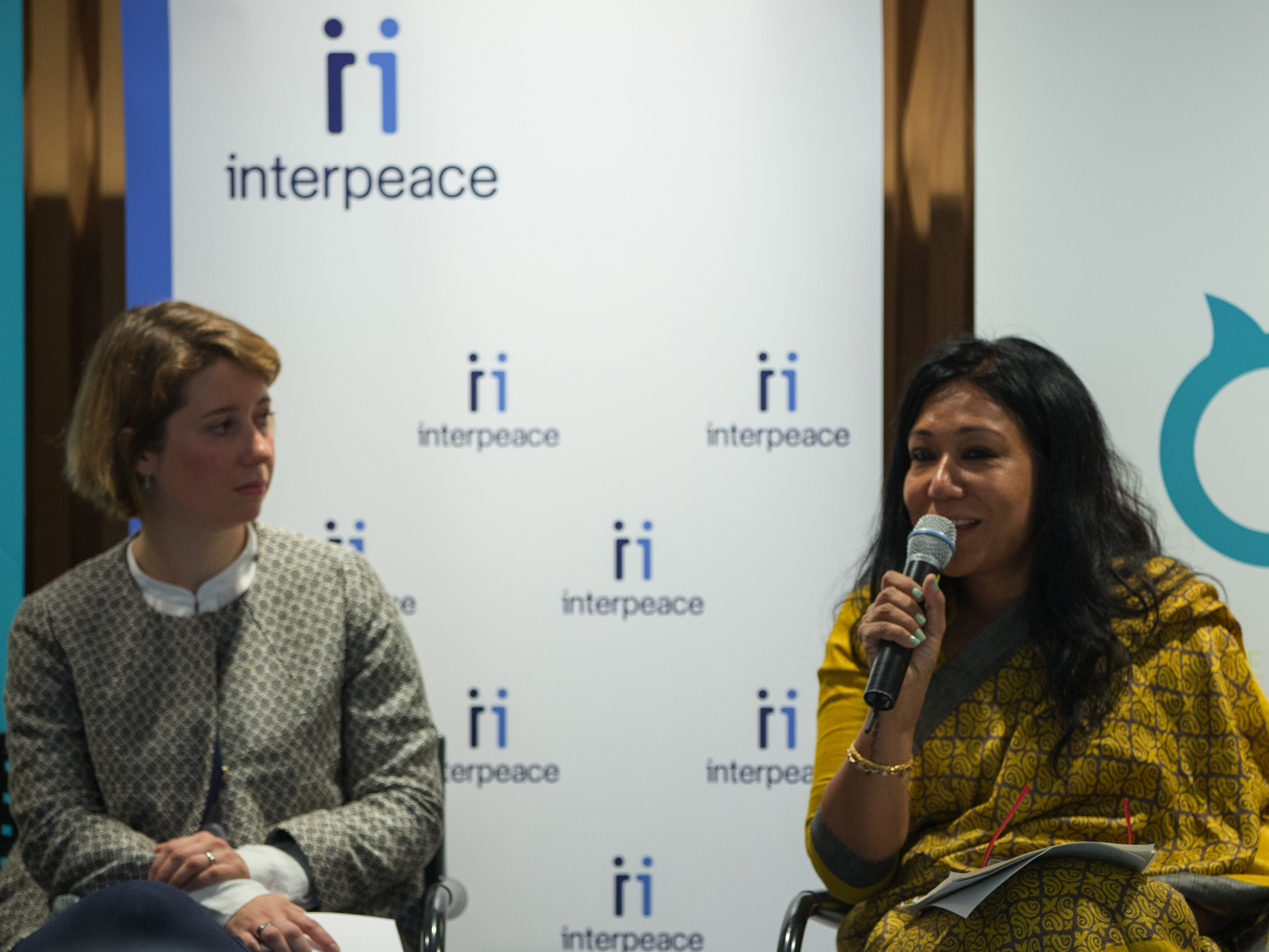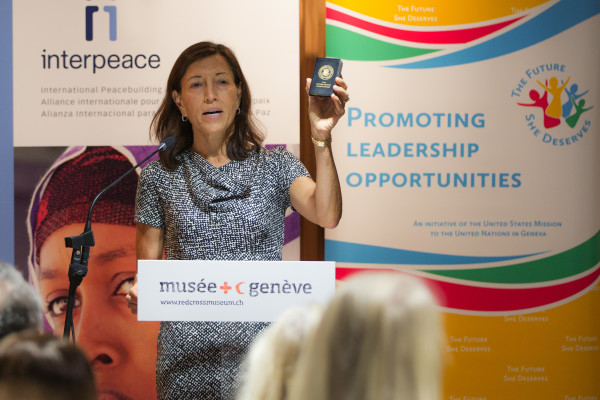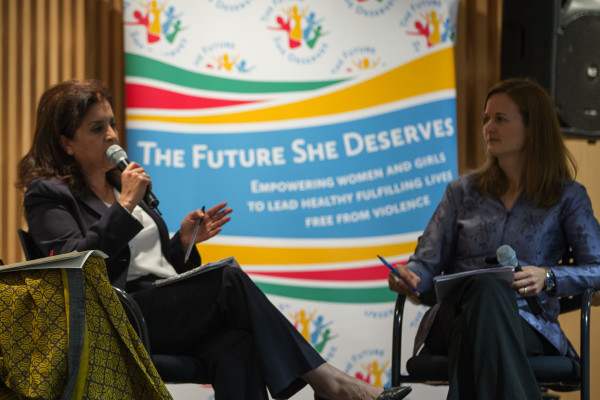Including women’s voices in Constitution-Making

Every year approximately 20 countries go through the process of writing or revising a constitution and a further 20 envisage doing so. At a recent event, “More Inclusive Ways to Peace: The Role of Women in Constitution-making processes”, experts and advocates in the field of constitution-making gathered to discuss how this process could be made more inclusive, ensuring that women’s voices are heard.
Scott Weber, Director-General of Interpeace, opened the discussion by stressing the potential that each constitution-making process represents for peacebuilding. He said they present a chance “for those countries to embrace more inclusive political practices by ensuring women participate fully at every stage and every level of the constitution-making process.”
Ambassador Pamela Hamamoto, Permanent Representative of the United States in Geneva, acknowledged that steps forward have been made in many countries due to the advocacy of women’s groups and civil society. Progressive and inclusive constitutions are important, she said, but warned that this is not enough.

Ambassador Pamela Hamamoto displays a copy of the US constitution during her opening remarks. Photo credit: François Wavre/ Lundi13 for Interpeace
“Equality on paper does not necessarily translate to equality on the ground.” She said. “There is no doubt that this form of equality will require more women in leadership positions on all fronts, in all sectors.”
This theme was continued by Fatima Outaleb, the founder of Union de l’Action Féminine in Morocco, who discussed the difficulties faced in achieving a truly representative constitution. In part, she said, the problem is one of political will, but civil society has also been responsible. “We as civil society have not done much to include the people we are speaking on behalf of,” she pointed out.
Ensuring gender equality in the constitution-making process is essential to building a sustainable peace, that's according to Farooq Wardaq, the former Minister of Education for the Islamic Republic of Afghanistan, who held key government roles in the revision of his country’s constitution and in ensuring women’s equal participation in elections.
A key to their success, as Wardaq pointed out, has been countrywide civic education that put a priority on reaching out to women. “Up until that time people thought the constitution was a book on a government shelf that meant nothing for their lives. This we had to change.”

Fatima Outleb discusses the challenge of fostering inclusivity in Morocco. Photo credit: François Wavre/Lundi13 for Interpeace
As a consequence of the constitution, he said, women now participate in 40% of national decision-making overall, and hold 29% of the seats in the upper house, 22% of the lower house and 22% of the provincial councils.
In order to advance women’s role in constitution-making and nationbuilding processes, Interpeace’s Women’s Constitutional Voices Programme provides a space for women to have their voices heard and to share their experiences and expertise.
“Our aim is to provide a platform for women – and for men who are fighting for gender justice – to share what works,” Scott Weber concluded. “It is up to all of us, men and women, to work together for find more inclusive ways to peace.”
